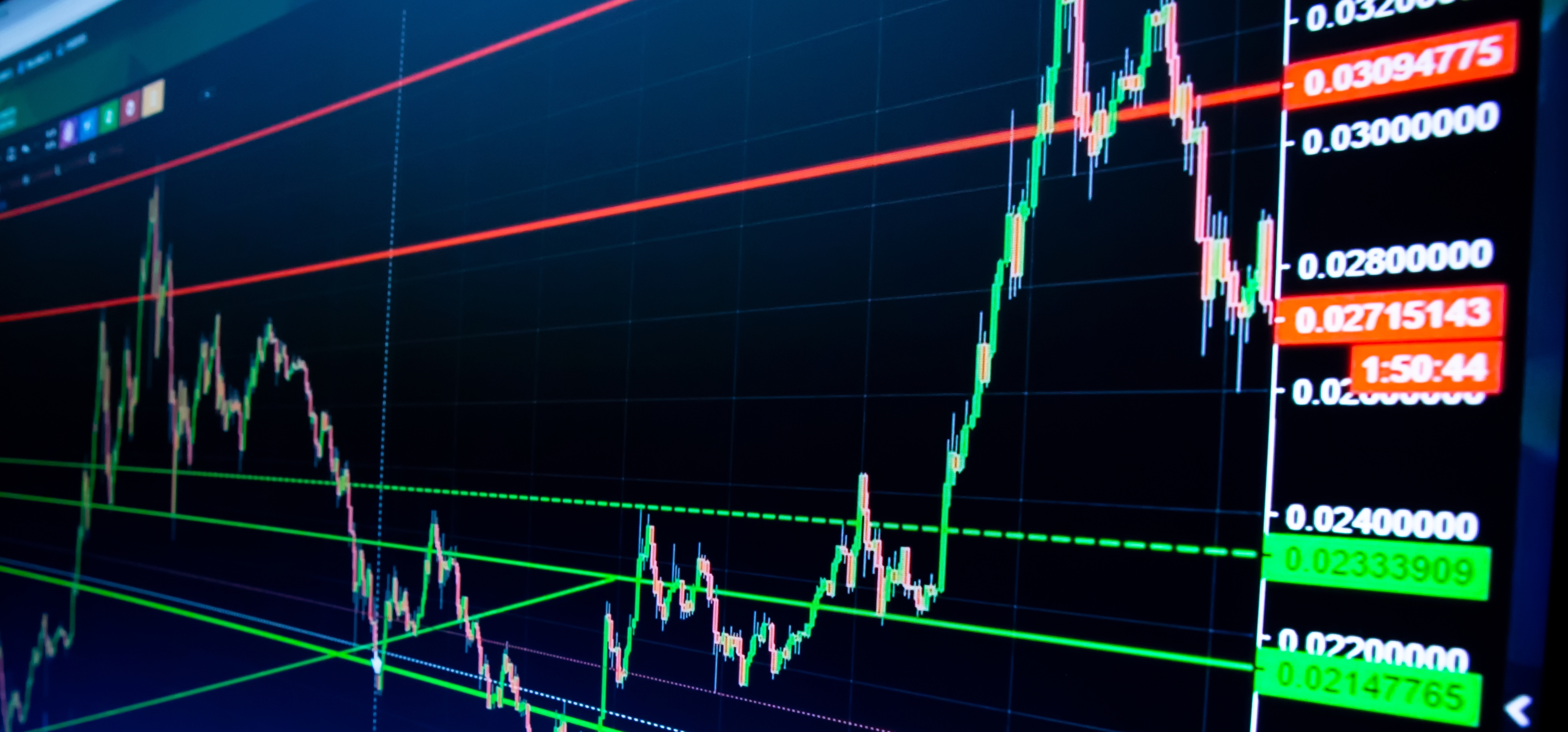
Takeaways from Recent Market Turbulence
Written by Ken on 2020-02-24
Global financial markets pulled back late last week due to additional coronavirus scares in Korea and Japan along with news of new cases emerging. As we’ve mentioned before, smart investors don’t just blindly follow the herd and try to understand what is truly happening. We’ll delve into the details together but first here’s how global markets performed last week:
The U.S.’ S&P 500 Index was -1.25% last week and +3.31% year to date. Hong Kong stocks followed suit with the Hang Seng Index -1.82% last week and -3.13% year to date.
In contrast, on the back of further monetary support from China’s central bank, Chinese stocks bucked the trend with the CSI 300 Index +4.06% last week and +1.29% this year. Investors’ flight to safe assets also pushed gold to it’s biggest weekly gain since June 2019 +3.75% last week and +8.31% for the year.
As a reference AQUMON’s client’s portfolios’ year to date returns (as of February 21st) are +1.0% (conservative) to 3.2% (aggressive).
Coronavirus continues to dominate headlines and impact markets

Late last week investors saw a sudden spike in new cases in South Korea with 229 new cases recorded in just 24 hours. At least 231 of South Korea’s 433 current confirmed cases, according to South Korea's Centers for Disease Control & Prevention (KCDC), are associated with the Shincheonji religious group located in the southern city of Daegu.
In Japan, the Diamond Princess cruise ship evacuees start returning to their home countries after a 14-day quarantine period but cases of evacuees testing positive for the coronavirus shortly after landing emerged in Japan, Hong Kong, Australia and additional countries. Countries are requiring evacuees to follow an additional 14-day quarantine in their home country.
World Health Organization (WHO) officials said the coronavirus outbreak in Iran, where health officials confirmed 28 new cases and 5 deaths in just 2-3 days “very worrisome”. Furthermore WHO officials said the window of opportunity to contain the virus is "narrowing" and called on countries to prepare for community transmission.
As of Sunday night, worldwide there are now 78,811 confirmed coronavirus cases across 32 countries. In Hong Kong, cases stand at 74 cases.
Global stock markets, as a result, retreated over 1-2% last week with China being the only regional stock market in comparison up over 4% due to additional monetary support this week and guidance by the People’s Bank of China (PBoC) that further stimulus is on the way to cushion the economy if needed.
With markets back at all time high levels was it the coronavirus or profit taking that triggered the late week selloff? It was a bit of both.

As a reminder, after January’s minor scare, global financial markets rebounded quickly back to previous all-time high levels by early February and continued to push upwards until late last week. From the market depths of January until the peak of February (peak to trough) was over 3% for the MSCI World Index and over 5% for the U.S.’ S&P 500 Index. With markets back up to these heights what were investors thinking?
Amongst investors there was already a lot of chatter and pressure to lock in some of their earlier profits given the potential unknowns ahead. The coronavirus based headlines just gave them an added reason to pull the trigger.
As mentioned last week we already started to see investors rotate slightly out of U.S. stocks into cheaper emerging market stocks. This week, according to Lipper they see investors rotate out of traditional equity funds into safer assets such as bonds and money market funds along with exchange traded funds (ETFs).
What are corporations telling us? Solid Q4 earnings but a bit mixed when looking ahead.
Lost amongst the coronavirus headlines are pretty solid U.S. corporate earnings reported this week. The U.S.’ S&P 500 Index companies showcased fourth quarter profit growth of +3.1% when analysts expected growth to be slightly negative. So things are not that grim.

Looking ahead, recently Apple and Coca Cola warned investors the coronavirus will likely cause revenues to fall short of estimates but gave diverging outlooks. Apple said this week all of its manufacturing facilities are outside Hubei province in China and have reopened. Production is slowly getting back to normal but slower than anticipated. Coca Cola said although they expect the coronavirus to drag first quarter earnings they are still expecting to meet their revenue and growth targets for 2020.
Economic figures wise, according to IHS Markit’s flash purchasing managers’ index (PMI) U.S. business activity fell to 49.6 in February (slight state of contraction) for the first time since 2013. This was more due to weakened demand in the services sector such as travel and tourism which is most heavily impacted by the coronavirus situation. U.S. manufacturing also slowed down but also encouraging since when looking ahead for the next year business sentiment was at an 8-month high which reflects optimism that slowdown may not be extended. An important point to note is U.S. PMI figures have been on the downtrend since 2018 so this is not a big surprise when calmly looking beyond the headlines.
The coronavirus should impact global supply chains, corporate earnings and economic growth but the degree is highly dependent on the duration of time it takes for governments and health officials to contain the situation. We will continue closely monitoring on the corporate level to get a better sense of the impact.
Will central banks step in if things go wrong?

As we saw from China’s People’s Bank of China (PBoC) this week the answer to whether they will take action is a resounding “yes”. Since the Lunar New Year the Chinese central bank has already provided swift monetary support twice to stimulate the economy and this week further announced more plans ahead if needed. The Chinese stock market continued to react positively +4% this week.
Investors are also increasing expecting (now at 90%) that the U.S.’ Federal Reserve (Fed) will cut short term interest rates at least once in 2020 to stimulate the economy although officials from the Fed have indicated there are no cuts in their plans yet.
Although this may not solve all problems central banks should be able to provide some relief and support for markets and economies if needed.
As investors what is my takeaway?
At least for last week we feel profit taking by investors due to stock markets being at all time high levels and general fear of the developing coronavirus situation were the main drivers that caused the pullback.
There are clearly a number of market unknowns ahead such as the impact from the coronavirus along with geopolitics (such as the long forgotten U.S. China trade war situation) but for now this yet to be a major cause for concern while details of these situations are still being flushed out.
Since the coronavirus situation started we’ve highlighted as investors we need to:
1) Constantly remind ourselves to not get distracted by the noise and focus on our long term investment goals.
2) Investors that are not comfortable with the upcoming market volatility are suggested to position a little more conservatively (reduce stock holdings and increase bond holdings).
3) It also makes sense to prepare some more money for strategic buying opportunities ahead if markets pullback.
Thank you again for your continued support for AQUMON, stay safe outside and happy investing!
About us
As a leading startup in the FinTech space, AQUMON aims to make sophisticated investment advice cost-effective, transparent and accessible to both institutional and retail markets, via the adoptions of scalable technology platforms and automated investment algorithms.
AQUMON’s parent company Magnum Research Limited is licensed with Type 1, 4 and 9 under the Securities and Futures Commission of Hong Kong. In 2017, AQUMON became the first independent Robo Advisor to be accredited by the SFC.
AQUMON’s investors include Alibaba Entrepreneurs Fund, Bank of China International and HKUST.
Disclaimer
Viewers should note that the views and opinions expressed in this material do not necessarily represent those of Magnum Research Group and its founders and employees. Magnum Research Group does not provide any representation or warranty, whether express or implied in the material, in relation to the accuracy, completeness or reliability of the information contained herein nor is it intended to be a complete statement or summary of the financial markets or developments referred to in this material. This material is presented solely for informational and educational purposes and has not been prepared with regard to the specific investment objectives, financial situation or particular needs of any specific recipient. Viewers should not construe the contents of this material as legal, tax, accounting, regulatory or other specialist of technical advice or services or investment advice or a personal recommendation. It should not be regarded by viewers as a substitute for the exercise of their own judgement. Viewers should always seek expert advice to aid decision on whether or not to use the product presented in the marketing material. This material does not constitute a solicitation, offer, or invitation to any person to invest in the intellectual property products of Magnum Research Group, nor does it constitute a solicitation, offer, or invitation to any person who resides in the jurisdiction where the local securities law prohibits such offer. Investment involves risk. The value of investments and its returns may go up and down and cannot be guaranteed. Investors may not be able to recover the original investment amount. Changes in exchange rates may also result in an increase or decrease in the value of investments. Any investment performance information presented is for demonstration purposes only and is no indication of future returns. Any opinions expressed in this material may differ or be contrary to opinions expressed by other business areas or groups of Magnum Research Limited and has not been updated. Neither Magnum Research Limited nor any of its founders, directors, officers, employees or agents accepts any liability for any loss or damage arising out of the use of all or any part of this material or reliance upon any information contained herein.
